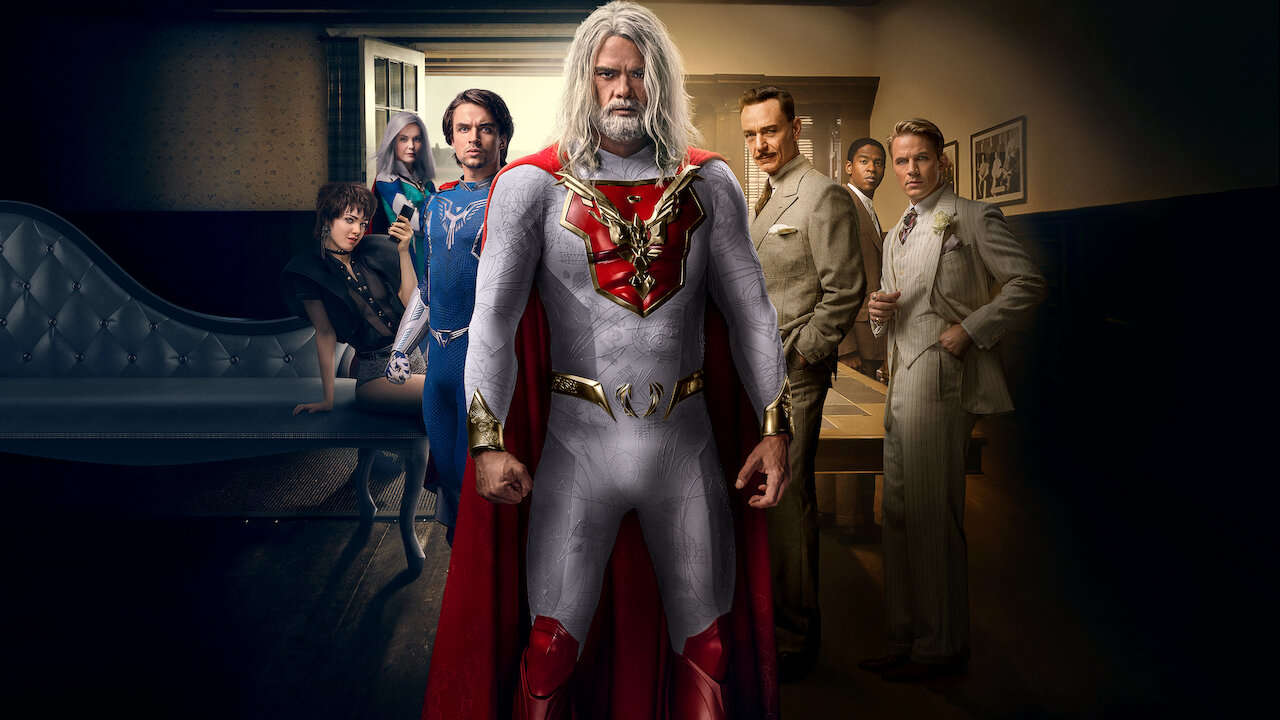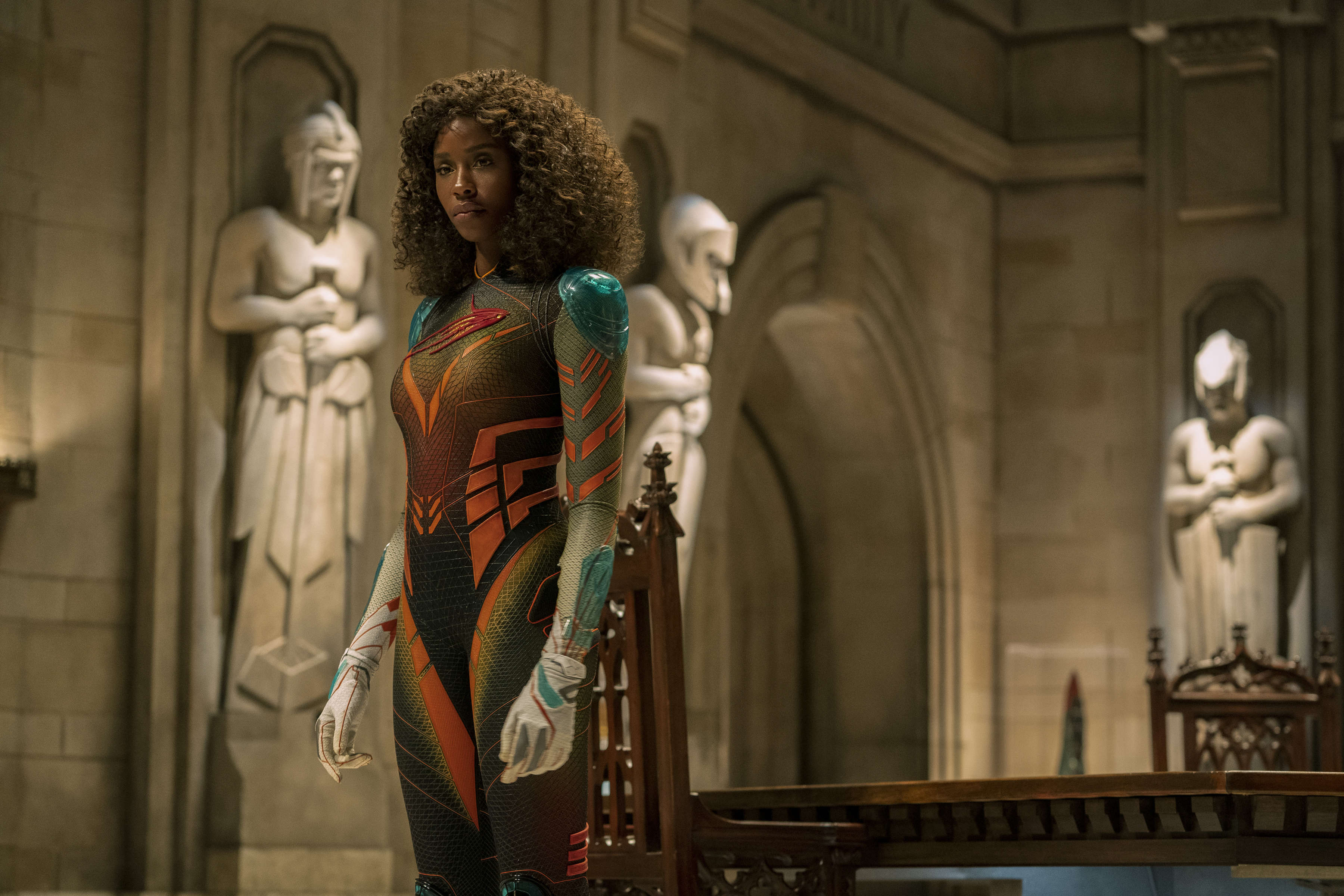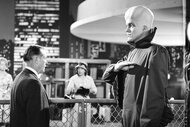Create a free profile to get unlimited access to exclusive videos, sweepstakes, and more!
Jupiter's Legacy is a superhero take on the 'Millennials versus Boomers' fight

The thing that makes Netflix's Jupiter's Legacy stand out in a crowded field of superhero series and movies is right there in the name: "Legacy." Generations and the passing of world-saving responsibility from one era of heroes to another have been a major aspect of long-running superhero comic universes for decades. Mainstream superhero movies, though, haven't been able to fully explore this theme yet. The MCU, which did feature Hank Pym as the first Ant-Man and Tony Stark's mentorship of Spider-Man, is starting to go down this road in earnest with series like The Falcon and the Winter Soldier. However, nothing the franchise has done so far comes close to interrogating what a multi-generational superheroic legacy looks like in action the way Jupiter's Legacy does.
"A big ensemble, taking place over two generations with this epic sci-fi story. It's kind of got everything," Mark Millar, the creator of the 2013 comic the show is based on, told SYFY WIRE ahead of the series premiere today, May 7. "We had to top everything that came before, as crazy as that sounds."
The series follows the exploits of the superhero team known as The Union, who have been saving the day for 90 years after first acquiring their extraordinary abilities on a voyage to a mysterious island. In the present day, however, their children — the next generation of heroes — are starting to wonder if their elders' old-fashioned code needs updating for the modern era. There's a dangerous supervillain and a mysterious conspiracy, but these characters' real kryptonite is their relationships with each other.
"You have the superheroes with the capes and the spectacle and the wild rides, but you also have a very intimate look into these seemingly perfect super-beings and their personal lives — their disfunction," says Elena Kampouris, who plays Chloe Sampson, the daughter of the greatest heroes of all, The Utopian (Josh Duhamel) and Lady Liberty (Leslie Bibb), and who wants nothing to do with the crime-fighting life.
"He's all-powerful, he can fly around the world and shoot laser beams out of his eyeballs, but he powerless when it comes to communicating with his 20-year-old daughter," says Duhamel, who plays the Superman pastiche The Utopian, known to his family as Sheldon Sampson. "Having taken the responsibility of being The Utopian for so long, he forgot to be there as a father."
There's tension all throughout The Union. Sheldon can't understand his rebellious daughter, but his son Brandon (Andrew Horton), who is trying everything he can to follow in dad's footsteps as the hero The Paragon, can't seem to get his approval either. Grace Sampson (Bibb) has been a wife, mother, and Lady Liberty for decades, but she's beginning to wonder how much longer she can be the glue keeping the family together. Meanwhile, Sheldon's brother Walter Sampson may have powerful mental abilities as the hero Brainwave, but as actor Ben Daniels puts it "having Elvis Presley as a brother," takes its toll — and he's been living in his younger brother's shadow for a century.
Even the family relationships that a viewer might think are "good" in Jupiter's Legacy are more complicated than that. Fritz Small (Mike Wade) was one of The Union's founding members, saving the day as the hero The Flare, but now his daughter Petra (Tenika Davis) fights crime as The Flare II.
"Often you have complex family relationships, but you don't really get to see how those relationships can be restored and mended. So, I love the character journey between Fritz Small and Petra Small because you actually get to see what it looks like for a father and daughter to have that wounded relationship that got mended," Davis says. "It's not completely perfect, we are still struggling with things, when we do come together, we do have that unity with one another."
Davis adds that she thinks it's especially important to see an on-screen representation of a Black family that has made amends after some difficulty, which is notable as in Millar's original comic, Fritz Small was white.
Jupiter's Legacy takes a near-universal concern — growing up and determining who you want to become — and makes the stakes supersized.
"You have seen this in Marvel and DC before where somebody takes on the mantle of Batman or takes on the mantle of someone else. But, that person always knows what their identity is — their personal identity," explains Ian Quinlan, who plays Hutch, a non-powered character who is nonetheless living in the shadow of another generation. His father, George Hutchence (Matt Lanter), was a founding Union member named Skyfox who went on to become a supervillain. "In this show, you're seeing people who are trying to become like their parents but who also struggle with not trying to be like their parents. You have these people who are struggling with who they are and who they want to become and how they want to become."
Of course, when the people having family and personal drama are the world's greatest superheroes, their struggles and debates affect other people, too. As The Utopian, Sheldon has had his fellow heroes adhere to a strict code: They don't kill and they don't use their powers to interfere too much with humanity.
"His intentions are in the right place. This is a guy who only is there to serve and to make the world a better place in his mind," Duhamel explains. "But 'The Code,' in the public's mind and even in his family's mind is a bit antiquated. He's learning that he better change with the times or they're going to pass him by. There's a lot of good that can come from that. It's sort of the North Star in a way.
"Is he a bit rigid in his sticking to that? I would say, probably," Duhamel admits. "But, he also knows that if you start changing, it could be a slippery slope. And if the motives behind this change aren't for the better, that can also be very dangerous.
"The show is about 'Millennials versus Boomers,'" Millar says, succinctly summing his creation up. "The Boomers are like 'We don't want to change things. What we do is make sure the system continues because the system is generally good. Most people do OK with the system and the chaos that could come if the system falls apart is terrifying. So, we try to maintain the status quo.'
"Whereas over on the other side, the Millennials are like 'Well the status quo isn't great for everyone,'" Millar continues. "'There's actually quite a lot of people who are doing very badly under it.'"
Crucially, neither side is presented as being totally right or wrong. When things are this complex and personal, the last thing you need is an escaped supervillain who brings everything to a head in Episode 1. That, however, is where Jupiter's Legacy begins.
Season 1 of Jupiter's Legacy is now out on Netflix.



























